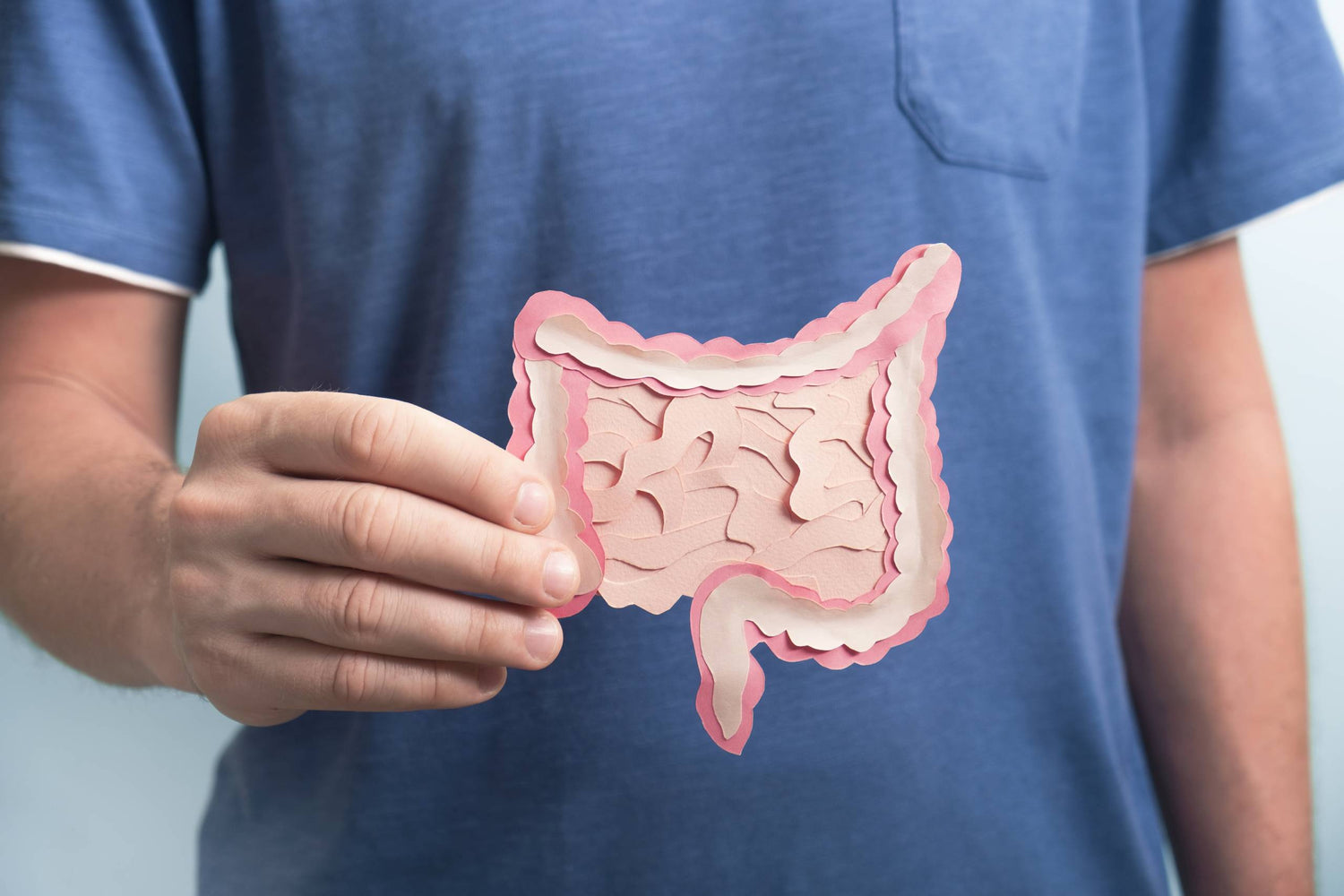The gut is often called the second brain because of its strong connection to brain function. This link, known as the Gut-Brain Axis, is a communication system that affects both physical and mental health.
At Recomnd, we recognize how important gut health is for overall well-being. Our supplements are designed to support the Gut-Brain Axis, promoting a balanced gut microbiome, better digestion, mental clarity, and mood stability. A well-functioning Gut-Brain Axis can help reduce inflammation, support immune function, and improve cognitive performance.
In this blog, we explore how the Gut-Brain Axis works, its impact on brain health, and practical ways to support gut health for better mental and physical well-being.
The Gut-Brain Axis and Its Role in Health
The Gut-Brain Axis is a complex communication network that connects the gut and brain, influencing digestion, mood, and cognitive function. This system includes the enteric nervous system (ENS), often called the body's "second brain." The ENS operates independently while also communicating with the central nervous system, regulating key bodily functions.
A major component of this connection is the vagus nerve, which sends signals between the gut and brain. This pathway helps control digestion, immune responses, and even emotional well-being.
However, stress, poor diet, and gut imbalances can disrupt this communication, leading to digestive issues, anxiety, and cognitive difficulties.
Maintaining a healthy gut supports brain function, reduces inflammation, and promotes overall well-being. Strengthening the Gut-Brain Axis through proper nutrition, probiotics, and stress management can improve both physical and mental health.
How Neurotransmitters Affect Gut-Brain Communication
The Gut-Brain Axis relies on neurotransmitters—chemical messengers that help the gut and brain communicate. A large percentage of these neurotransmitters are actually produced in the gut, playing a crucial role in both mental and physical health.
Key Neurotransmitters and Their Functions:
-
Serotonin – About 90% of the body’s serotonin is made in the gut. It regulates mood, digestion, and sleep patterns.
-
Dopamine – This neurotransmitter influences motivation, pleasure, and motor functions, impacting both gut motility and brain activity.
-
GABA (Gamma-Aminobutyric Acid) – Helps reduce stress and anxiety by calming the nervous system and promoting relaxation.
The Impact of Neurotransmitters on Health
These neurotransmitters do more than regulate mood—they affect several critical functions:
-
Emotional Balance – They help manage stress, anxiety, and depression by influencing brain chemistry.
-
Digestive Health – They regulate bowel movements, nutrient absorption, and gut microbiome balance.
-
Immune System Support – The Gut-Brain Axis plays a key role in the body's immune response, affecting inflammation and overall resilience.
When neurotransmitter production is disrupted due to poor gut health, stress, or an imbalanced microbiome, it can lead to issues like digestive disorders, mood imbalances, and neurodegenerative conditions.
Supporting gut health through probiotics, a nutrient-rich diet, and stress management can help maintain neurotransmitter balance, promoting both cognitive function and overall well-being.
How Gut Health Affects Brain Function and Mental Well-Being
Research shows that gut health plays a critical role in cognitive function and mental health. The Gut-Brain Axis connects the digestive system and nervous system, influencing emotions, memory, and overall brain function. When gut health is disrupted, it can contribute to mental health issues and neurological disorders.
Mental Health Conditions Linked to Gut Health:
-
Depression and Anxiety – An imbalance in gut bacteria can affect serotonin and dopamine levels, leading to mood disorders.
-
Neurodevelopmental Disorders – Conditions such as autism, schizophrenia, and epilepsy may be linked to gut health imbalances.
-
Migraines – Gut dysfunction and inflammation can trigger chronic migraines by affecting brain chemistry and nerve signaling.
A healthy gut microbiome supports mental clarity, emotional stability, and cognitive function. Eating a balanced diet rich in fiber, probiotics, and essential nutrients can help maintain gut health and improve brain function. Managing stress, getting quality sleep, and avoiding processed foods also contribute to a strong Gut-Brain Axis, promoting overall well-being.
Supporting the Gut-Brain Axis with Probiotics and Nutrients
Maintaining a healthy Gut-Brain Axis is essential for overall well-being. A balanced gut microbiome helps regulate neurotransmitter production, cognitive function, and emotional health. Adding the right nutrients and probiotics to your diet can enhance gut health, ensuring a strong connection between the gut and brain.
Key Ways to Support the Gut-Brain Axis
-
Probiotics for Gut Health – Beneficial bacteria help balance the microbiome, improving digestion, reducing inflammation, and supporting neurotransmitter production.
-
Nutrients for Brain Function – Ingredients that promote nitric oxide production enhance blood flow and oxygen delivery, supporting both gut and brain function.
-
Natural Stress Support – Calming agents and mood stabilizers help regulate stress hormones, preventing disruptions in gut-brain communication.
A nutrient-rich diet, probiotics, and lifestyle habits like regular exercise and stress management can strengthen the Gut-Brain Axis. At recomnd™, our supplements are designed to support gut health, enhance neurotransmitter balance, and improve overall mental and physical well-being.
Visit recomnd.com to explore our range of supplements and start your journey to better health.
FAQs
1. What is the Gut-Brain Axis, and why is it important?
The Gut-Brain Axis is a communication network between the gut and the brain, influencing digestion, mood, cognitive function, and immune health. A balanced gut microbiome supports neurotransmitter production, reducing stress and promoting mental well-being.
2. How does gut health affect cognitive function?
A healthy gut produces neurotransmitters like serotonin and dopamine, which play a key role in mood, memory, and focus. An imbalanced gut microbiome can contribute to brain fog, anxiety, and even neurodegenerative diseases.
3. Can probiotics improve mental health?
Yes, probiotics help balance gut bacteria, which supports neurotransmitter production and reduces inflammation. Studies suggest that a healthy gut microbiome can improve mood, reduce anxiety, and support cognitive function.
4. How do recomnd™ supplements support the Gut-Brain Axis?
Recomnd™ supplements contain probiotics, nutrients for brain function, and natural stress support ingredients. These help improve gut health, balance neurotransmitters, and enhance mental clarity.




